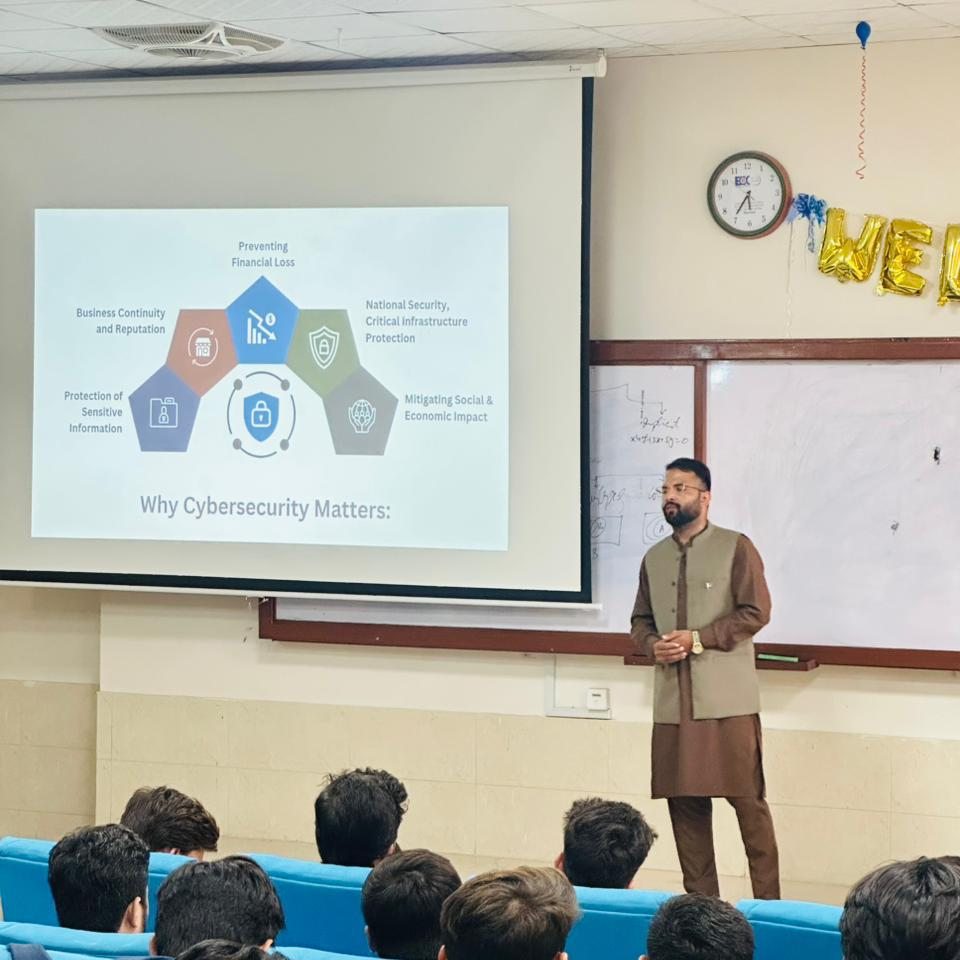The rising incidents of blackmail and sexual harassment targeting women on social media are alarming. Hackers, using fake social media accounts, have started creating and distributing unethical images of young girls, as well as married and divorced women, to blackmail them. Muhammad Asad Ul Rehman, a cybersecurity expert from Cyber Security of Pakistan, highlighted these issues during an awareness campaign focused on the increasing blackmailing incidents involving women.
He pointed out that many young girls in educational institutions have fallen victim to such schemes, where boys create fake accounts pretending to be girls to establish friendships. Later, they exploit these relationships to obtain pictures and misuse them through advanced technology. Some women silently endure this blackmail, while others even attempt suicide.
To protect themselves from such predicaments, social media users, especially women, should adhere to a few basic precautions:
- Keep Social Media Profiles Private: Women should keep their profiles private to limit access to their personal information.
- Be Cautious with Sharing Pictures: Even if women do not share their photos on social media, they should avoid sending pictures via Facebook or WhatsApp, even if pressured. These pictures can be used for blackmailing.
- Protect Personal Information: Avoid sharing personal details such as mobile numbers, email addresses, and dates of birth.
- Avoid Suspicious Links: Refrain from opening suspicious links received on WhatsApp, Twitter, or Facebook. These links can allow hackers to gain control over your device and access sensitive information like social media account details, bank information, and credit card numbers.
- Do Not Share Account Details: Never share social media account details, such as usernames, emails, and passwords, with even close friends.
- Report Fake Accounts: If someone creates a fake account using your name and pictures, report the account to the social media platform’s administration and ask your friends to do the same.
- Communicate with Family: If you are being blackmailed, talk to your family first. Admitting any mistakes to them and gaining their support is crucial. It’s better to have your family’s support than to suffer alone.
- Report to Authorities: After informing your family, report the incident to the FIA Cyber Wing to take action against the perpetrators. The FIA Cyber Wing has offices in major cities such as Karachi, Lahore, Islamabad, and Peshawar, and also offers an online reporting option through their NR3C website.
Muhammad Asad Ul Rehman emphasized that Cyber Security of Pakistan is also organizing regular lectures in colleges, universities, and other institutions to raise awareness about the dangers of social media blackmailing and to help curb this menace.
سوشل میڈیا پر خواتین کو بلیک میلنگ کرکے جنسی تشدد کا نشانہ بنانے کے واقعات تشویشناک ہیں۔ ہیکرز نے جعلی سوشل میڈیا اکاؤنٹس کے ذریعے نوجوان لڑکیوں کے ساتھ ساتھ شادی شدہ اور طلاق یافتہ خواتین کی غیراخلاقی تصاویر بنا کر انہیں بلیک میل کرنے کا سلسلہ شروع کر رکھا ہے۔ان خیالات کا اظہارسائبر سکیورٹی آف پاکستان کے سائبرایکسپرٹ محمداسدالرحمن نے خواتین کے بڑھتے ہوئے بلیک میلنگ واقعات کے متعلق آگاہی مہم میں کیا۔ انہوں نے کہا کہ سوشل میڈیا کے چکر میں تعلیمی اداروں کے کئی نوجوان لڑکیاں بھی اپنی عزت گنوا چکی ہے۔متعدد لڑکے اپنے آپ کو لڑکی ظاہر کرکے سوشل میڈیا جعلی اکاونٹس بنا کر دوستی کرتے ہیں اور بعدازاں مذکورہ لڑکیوں کی تصاویر حاصل کرکے جدید ٹیکنالوجی کے ذریعے ان کا غلط استعمال کرتے ہیں۔بعض خواتین اس بلیک میلنگ کا شکار ہوکر چپ چاپ سب کچھ سہہ لیتی ہیں جبکہ بعض خواتین خودکشی کی کوشش کرتی ہیں۔انہوں نے کہا کہ اس ضمن میں سوشل میڈیا صارفین خاص طور پر خواتین چند بنیادی باتوں کا خیال کرکے بلیک میلنگ سے خود کو محفوظ رکھ سکتی ہیں۔سوشل میڈیا پر اپنا پروفائل پرائیویٹ رکھیں۔بعض خواتین اپنی تصاویر سوشل میڈیا پر تو شیئر نہیں کرتیں لیکن اپنے کمپیوٹر یا موبائل میں ضرور رکھتی ہیں۔ لہذا کوشش کریں کہ کسی کے اصرار پر بھی فیس بک یا واٹس ایپ کے ذریعے تصاویر ارسال نہ کریں۔ آپ کی وہی تصاویر بلیک میلنگ کے لیے استعمال ہوسکتی ہیں۔ اپنے بارے میں معلومات بالکل فراہم نہ کریں جیسے کہ موبائل نمبر، ای میل ایڈریس اور تاریخ پیدائش وغیرہ۔واٹس ایپ، ٹویٹر یا فیس بک پر موصول ہونے والے مشکوک لنکس کھولنے سے گریز کریں۔ بعض لنکس ایسے ہوتے ہیں جن پر کلک کرتے ہی ہیکرز آپ کے موبائل، لیپ ٹاپ اور کمپیوٹر کا مکمل کنٹرول حاصل کرتے ہیں اور آپ کے سوشل میڈیا اکاؤنٹس کی تفصیل سمیت بینک، کریڈٹ کارڈ اور دیگر حساس نوعیت کی معلومات ہیکرز کے ہاتھ لگ جاتے ہیں۔اپنے سوشل میڈیا اکاؤنٹس کی تفصیلات مثلا یوز رنیم، ای میل اور پاسورڈ وغیرہ اپنے قریبی دوستوں کے ساتھ بھی شیئر نہ کریں۔اگر آپ نے اپنی تصاویر سوشل میڈیا پر شیئر کی ہیں اور کوئی اور آپ کے نام سے یا کسی بھی نام سے اکاؤنٹ بناکر آپ کی تصاویر استعمال کرے تو خود بھی وہ آئی ڈی سوشل میڈیا سائٹس کی انتظامیہ کو رپورٹ کریں اور اپنے دوستوں سے بھی کروائیں۔اگر کوئی آپ کو بلیک میل کرنے کی کوشش کرے توسب سے پہلے اپنے گھر والوں کے ساتھ اس بات کا ذکر کریں۔ اگر آپ سے بھی کوئی غلطی ہوگئی ہے تو اپنی غلطی گھر والوں کے سامنے تسلیم کرکے ان کو اعتماد میں لیں۔ گھر والوں سے بات چھپا کر بلیک میلنگ کا شکار ہونے سے بہتر ہے کہ آپ کے اہل خانہ آپ کے ساتھ کھڑے ہوجائیں۔اس کے بعد سب سے پہلے ایف آئی اے کے سائبر ونگ کو رپورٹ کریں تا کہ وہ مجرموں کے خلاف کاروائی کر سکیں۔ایف آئی اے سائبر ونگ کے کراچی، لاہور، اسلام آباد، پشاور کے علاوہ ملک کے تقریباً تمام بڑے شہروں میں دفاترقائم کر دیے گئے ہیں۔ دفتر میں جاکر شکایت کریں یاnr3c کی ویب سائٹ پر آن لائن رپورٹ کریں۔انہوں نے کہا کہ سائبر سکیورٹی آف پاکستان کہ جانب سے سوشل میڈیا کے حوالے سے کالجز ویونیورسٹیوں اور دیگر اداروں میں باقاعدہ لیکچرز کا انعقاد بھی کیاجا رہا ہے تاکہ سوشل میڈیا پر بلیک میلنگ کا سلسلہ ختم ہو سکے۔




